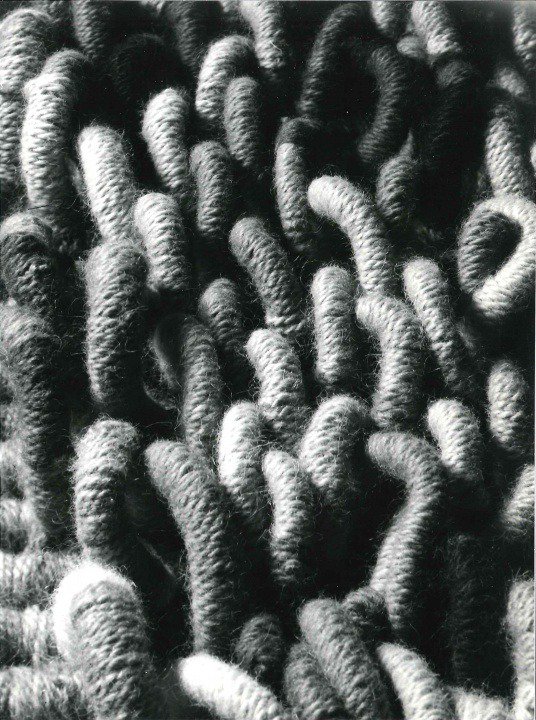Unwoven World
dal 8/4/2014 al 21/6/2014
Segnalato da
8/4/2014
Unwoven World
Office for Contemporary Art Norway - OCA, Oslo
Beyond the Pliable Plane. The exhibition features the works of Norwegian artists Brit Fuglevaag, Elisabeth Haarr and Sidsel Paaske, who in the 1970s explored the domestic sphere and the everyday consumer object. Using weaving techniques, textiles and seriality, they insisted on the communicative role of the two-dimensional surface as one that moves beyond the mere picture.

OCA is pleased to announce the opening of ‘Unwoven World: Beyond the Pliable Plane’, an exhibition presenting the works of Norwegian artists Brit Fuglevaag, Elisabeth Haarr and Sidsel Paaske, who in the 1970s explored the domestic sphere and the everyday consumer object. These artists engaged in an intensive quest for a return to traditional crafts, emphasising the profound need to explore alternative creative modes, systems and media. Using weaving techniques, textiles and seriality, they insisted on the communicative role of the two-dimensional surface as one that moves beyond the mere picture. Paralleling their concerns with those of the 19th century Norwegian weavers, they contested the role of media, which augmented a streamlined perception of both the private and the public spheres.
The catalysts of heated debates about the role of artists within society Fuglevaag, Haarr and Paaske aimed to challenge the means deemed appropriate to the creation of a work of art, as well as question the values that place that art in the public realm. Presenting key works, some of which have never been seen publically before, the exhibition ‘Unwoven World: Beyond the Pliable Plane’ aims to function as an index of a historic genealogy, reactivated through the performativity of words, texts and concerts. On the occasion of this exhibition OCA also presents the first English translation of Paaske’s poem Indigo, originally published in 1979.
`Unwoven World: Beyond the Pliable Plane’ marks the completion of the programme ‘Fashion: the Fall of an Industry’, a series of lectures held at OCA in the autumn of 2013. The lectures analysed the decline of the textile industry during the 1970s in Norway as well as artistic reaction to and reflection upon the unforeseen aspects of industrialisation, the need to care for environmental and working conditions, and the social impact experienced through the outsourcing of production. The exhibition is also accompanied by a selection of Alexander Kluge’s eclectic collection of ‘raw materials’, a series of television programmes assembling photographs, drawings, diagrams and diverse footage construed to 'strengthen the muscles of [our] power of imagination'. Alexander Kluge, a central figure of the German cultural landscape – as a filmmaker, writer and television producer – has for the past fifty years been tackling the capacity of fantasy to organise individual experience otherwise concealed by structures of conciousness and the screens capturing our attention.
UPCOMING WITHIN THE OCA SEMESTERPLAN – SPRING 2014
Wednesday, 28 May 2014, 7pm
‘String Theory. The Aesthetic of Crafts and the Crafting of Politics. Some commentary on the Work of Goshka Macuga, Etel Adnan, Alighiero Boetti and Füsun Onur’
A lecture by Carolyn Christov-Bakargiev
Wednesday, 4 June 2014, 7pm
‘Phoenix Public Sphere. Man is no Private Being’
A Lecture by Rainer Stollman
Followed by the screening of The Blind Director (directed by Alexander Kluge, 1985)
Image: Brit Fuglevaag, Spindel (detail, 1974). Photo: Olaf Væring. © the artist / BONO 2014
For press inquiries please contact: press@oca.no
Opening date: Wednesday, 9 April / 19:00, with a concert by Kim Myhr, organised in collaboration with Ultima Oslo Contemporary Music Festival
Office for Contemporary Art Norway
Nedre gate 7 - 0551 Oslo
Opening Hours: Thur. & Fri. / 3–7pm; Sat. & Sun. / 12–7pm. Closed on 20 April, 1 May and 17 May.



